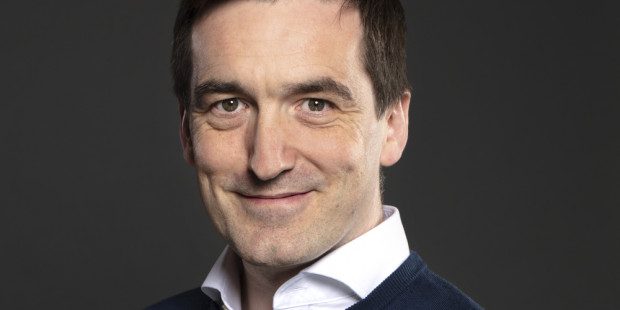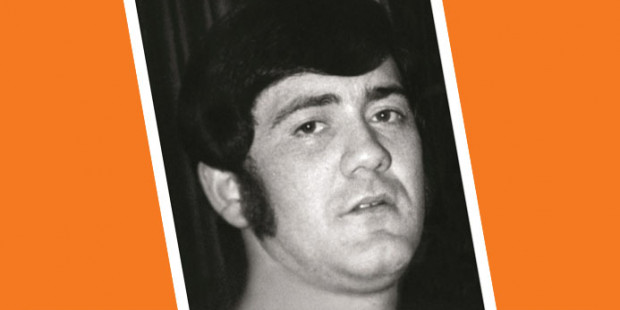2022 marks 40 years since the death of Terry Higgins and the formation of Terrence Higgins Trust, the first charity in the UK to be set up in response to the HIV epidemic.
From the first HIV activism in the UK to our work in tackling sexual health inequalities and preventing new cases of HIV, we have always been a radical and ambitious force. Our strategy for the future embraces this spirit.
This is an exciting and historic time – we will do everything in our power to end new cases of HIV by 2030 and improve the nation’s sexual health.
How we will deliver our mission
Over the next three years, we will continue our service delivery, campaigning, public awareness and health promotion work in partnership with others.
We will work together with our communities, service users, staff, partners and supporters to drive change and deliver our vision.
Read our mission, vision and values
1. There are no new HIV cases
Every week around 60 people are diagnosed with HIV and have to learn to cope with the impact this has on their lives. But with the advent of effective treatment (as prevention), testing, PrEP/PEP and condoms, it doesn’t have to be this way.
In 2020, we worked with our partners at National AIDS Trust and Elton John AIDS Foundation to initiate a multi-stakeholder HIV Commission for England, working to identify what needs to be done to ensure that there are no new HIV cases in the UK by 2030. It went above and beyond, providing a road map for the UK to be the first country in the world to meet this ambition. We are committed to seeing this plan delivered, as well as looking to what we can do globally to drive down new HIV cases.
In the UK by 2030, we will:
- Challenge all UK governments to have ambitious HIV prevention action plans which are properly funded and actively implemented, making sure no communities are left behind.
- Deliver public awareness campaigns which raise the importance of HIV testing and HIV prevention strategies including PrEP, condoms and treatment as prevention (U=U).
- Provide HIV tests, free to those who need them, with specific targeting to underserved and marginalised communities disproportionately impacted by HIV.
- Champion innovations in HIV testing and prevention, learning from others and sharing our knowledge.
- Work to better understand the needs of the communities who need us most.
We’ll play our part internationally:
- We will explore how to use what we have learnt to assist in driving down new HIV transmissions globally, collaborating with international organisations and global partners with a particular focus on U=U/”Can’t Pass It On”.
- We will pilot specific work where opportunities arise aligned to this strategy, focussing on those most in need.
2. People living with HIV get the support they need
For many people, living with HIV does not cause many issues in their day to day lives. However, for others, particularly people who have been long-term diagnosed, daily life can be a struggle.
People living with HIV are around twice as likely to have issues with their mental health, and 1 in 3 live in poverty compared to 1 in 5 in the general population. People who are newly diagnosed often need support around coming to terms with their diagnosis and getting used to their treatments. Many others are concerned about their risk of HIV, and need vital information and access to prevention tools.
We are here for anyone concerned by, or living with HIV, whenever they need us. We are here to help everyone living with HIV to thrive.
We will:
- Expand THT Direct to act as a gateway point for people who need support or information about living with HIV.
- Deliver high quality information on HIV, delivered across a range of platforms.
- Grow our offer to provide a greater level of tailored support for those with more complex and immediate needs. This could include people who are at risk of being diagnosed late; people from marginalised communities; those who are growing older with HIV; chemsex users.
- Continue to deliver appropriate peer support.
- Continue to provide grants for people who are experiencing financial hardship.
- Work in partnership with the NHS and wider social care to provide tailored, community-based HIV services.
- Work to influence governments to have HIV strategies offering the care and treatment people need.
- Fight for justice and compensation for those infected with HIV because of NHS contaminated blood products.
3. Everyone can access good quality sexual and reproductive health services and information tailored to their individual needs
Health inequalities in sexually transmitted infections have only been made more evident in light of the COVID-19 pandemic. We will expand and adapt our service offering to meet communities’ needs, continuing to provide a range of sexual and reproductive health and HIV services across the UK, often in partnership with local authorities, health boards and other statutory partners where these meet our strategy.
We are here to support everyone impacted by poor sexual health. With so many health inequalities being deeply engrained throughout health and social systems, our work will challenge them and innovate to tackle them at source. Additionally, we have created a new role to focus on health equity in key populations, prioritising greater diversity at all levels in the workforce including leadership roles.
We will:
- Continue to provide support and information for people when they need it, expanding the use of THT Direct as a way in.
- Work in partnership with local authorities, NHS and the wider health and social care economy throughout the UK to deliver community-based sexual and reproductive health and blood borne virus (BBV) services.
- Deliver high quality information on sexual and reproductive health delivered across a range of platforms.
- Have a greater focus on understanding the needs of, and expanding our support for, those in marginalised and underserved communities. This includes racially minoritised communities, trans and non-binary people, people impacted by the Contaminated Blood Scandal, people growing older living with HIV or who are experiencing poor sexual health.
- Actively influence all UK governments to have clear sexual and reproductive health strategies resulting in equitable services for care and treatment.
- Work collaboratively with partners including the NHS to ensure that the most accurate data on inequalities associated with the prevention, diagnosis and treatment of BBVs and STIs is available and can influence service delivery.
- Assess our information, services and fundraising to determine and fill any accessibility or inclusivity gaps.
4. HIV and sexual and reproductive health are free from shame and stigma
We are determined to make stigma around HIV, sex, and sexual and reproductive health a thing of the past. We’ll tackle outdated information in the public sphere and amplify the stories of those living with HIV or experiencing poor sexual or reproductive health, ensuring that their lived experiences are at the heart of our work.
There are clear inequalities in terms of the communities most impacted by poor sexual health. Black people bear a far higher burden of common STIs, with a 9% increase in STI rates among those of Caribbean heritage in 2019. In the last four years, gay and bisexual men have seen an 83% jump in chlamydia diagnoses.
Living in the most disadvantaged parts of the UK is also associated with higher admissions for conditions such as pelvic inflammatory disease and ectopic pregnancy, higher rates of teenage pregnancy, and higher abortion rates, indicating difficulties in accessing contraception for women in these areas.
These inequalities aren’t new but there’s still a shocking lack of information about the impact of structural inequalities including misogyny, racism, homophobia and transphobia. We know that many communities continue to face massive health inequalities, and so we will expand our work to respond to those needs in relation to HIV and sexual and reproductive health for women, racially minoritised communities, trans and non-binary people and young people.
We will:
- Campaign to change institutionally stigmatising legislation and policy practices in private, public and voluntary organisations.
- Deliver public awareness campaigns to increase knowledge and bust myths that perpetuate stigma, highlighting the disproportional impact on certain groups and communities.
- Expand our peer voices HIV outreach and inclusion programme with a focus on diversity and intersectionality.
- Educate young people and others who require it about sex and consent, sexual and reproductive health, and HIV.
- Work with healthcare professionals to ensure safe, appropriate, fully informed and non-stigmatising care around HIV and sexual and reproductive health.
- Ensure our own services are fully inclusive and reflect our communities’ diversity.
- Improve the accessibility, inclusivity and reach of our information by better using our channels to reach people with the right content for them.
5. Everyone in our organisation respects and values diversity, creating an environment that is inclusive of all, and by working in partnership with others we reduce inequalities in sexual health
It is often marginalised communities that face the greatest inequalities in sexual and reproductive health. As activists we work within many different communities to challenge health inequalities and we work to overcome stigma and misinformation, ensuring our services and information meet the needs of all communities. Through our work we will help drive down prejudice and discrimination.
We will:
- Campaign to challenge the direct barriers and underlying structural issues that lead to inequalities in HIV, sexual health and reproductive health outcomes for all communities at risk of HIV and sexual and reproductive health inequalities.
- Deliver specific and appropriate public awareness campaigns tailored to the needs of the diverse communities we serve; particularly for some African and Caribbean heritage communities, women, trans and non-binary people, young people, gay and bisexual men and people living with disabilities.
- Use our influence to promote equity, diversity and inclusion internally and in our work with others.
- Work with communities around delivery of education programmes tailored to individual groups around HIV, and sexual and reproductive health.




